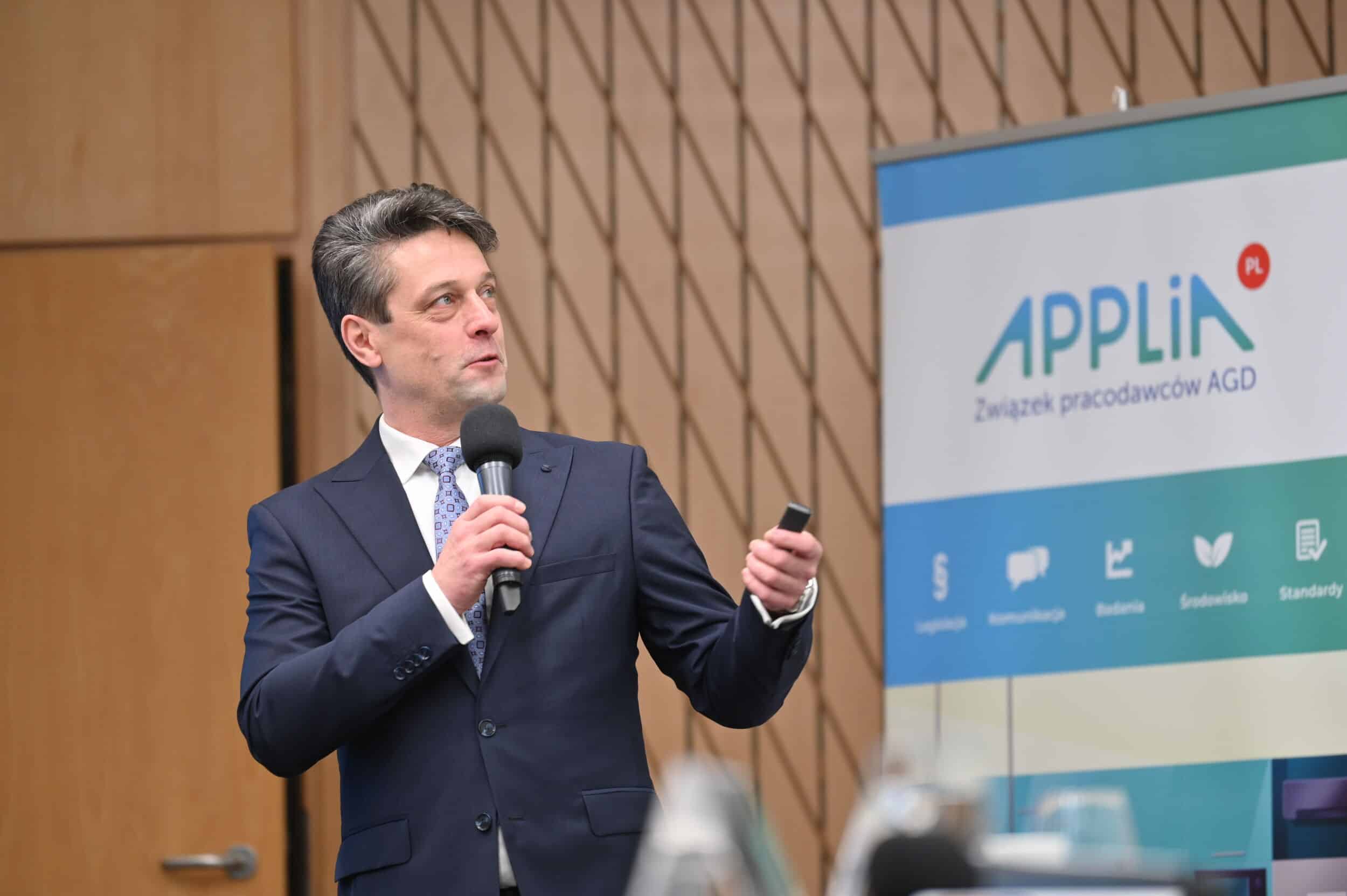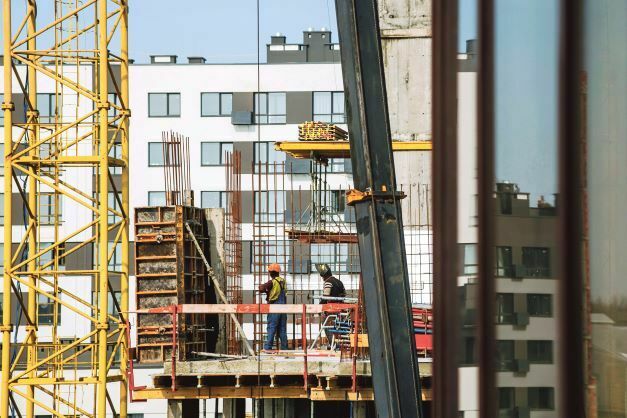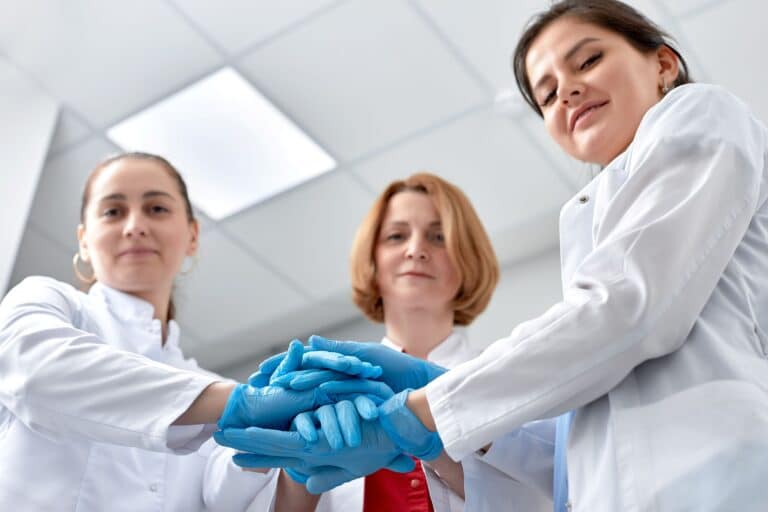Poland’s household appliances market shines on a global scale
A record 2 billion zlotys – €450 million – was invested by household appliances producers in Poland last year. This shows that the industry is betting on the country, despite the difficult situation in the entire industry and on the household appliances market.
Sylwia Ziemacka talked to Wojciech Konecki, CEO of the Polish Association of Household Appliance Employers and Vice-president of the Polish Chamber of Commerce.
You have just launched your report on the Polish home appliances market. I think the most significant fact is that household appliances producers invested a record 2 billion zlotys (about €450 million) in Poland last year. In a year that was extremely difficult for the whole industry. What does this mean for the market?
Last year, there was a threat that after Russia’s invasion of Ukraine investments might dry up. It didn’t happen. They are still continuing and our members are developing in Poland. Right now we have more than 35 factories, especially in major appliances. Also in 2022 we had new investors coming to Poland, like Daikin Europe, with an investment of €300m to establish a factory in Poland dedicated to the manufacture of residential heat pumps.
We see the growing interest of Korean, Japanese and European companies in Poland and I already know about some new projects that will be announced this year.
What’s the current position of Poland on the European market of home appliances?
Poland is a leading country in the sector. We represent more than 40% of output. The position of Germany, Italy, Turkey is strong and there are new markets growing, like Romania, so we need to take this into account, but we are strong in the major product groups, like refrigerators, washing machines, dishwashers and dryers. There are also new products like heat bombs, which are really growing and it will strengthen Poland’s export position.
What’s the position of Poland when it comes to exports?
We are exporting more than 90% of our products. Globally, we are the second country in this race just after China. That’s really a huge success. We are ahead of countries like Germany, Mexico, Turkey and the US.
Our products are mainly exported to European markets, like Germany, UK, France, Italy, Spain, but also we are exporting quite a lot to Czechia and Sweden.
What is also important is a supply chain and our sub-suppliers in Poland but also on the European markets. Each investor coming to Poland comes with a chain of small and medium sized companies. But also at the same time Polish suppliers are growing because they are gaining and reaching much higher sales and production results in part due to partnering these big investors and producers.
What attracts investors to Poland?
There are several factors. Poland is pretty well located on the European map, so we are somewhere between east, west and north south. We have very high level universities and technical universities. So students are prepared very well to serve the market. At the same time the salaries are still competitive. So this economic impact is very important.
Also, as I mentioned, chains of the sub-suppliers and suppliers are extremely important. What is crucial is to attract the biggest companies because then others will follow. That’s what we have seen so far – when a big investor comes to our country, then some time later we also welcome its competitors. For them it’s important to be close to their rivals but also to use its supply chain and sub-suppliers.
What about R&D centers? Do the companies from the home appliances sector invest in innovations here in Poland?
Yes, this is something also happening. We have a lot of multinationals in Poland in this sector. This is a typical trend, maybe not only for our industry. 20 to 30 years ago, we had simple assembly lines. In the last 10 years, those factories have been transformed into the most modern factories in the world. Some of them are producing five, six, seven or even 10,000 appliances per day.
The third step which is very important is opening R&D and shared services centers. A lot of companies are employing thousands of young people, especially engineers and IT specialists.
This puts our country on a completely different level, the highest in the world.
How is the sector managing environmental issues?
All environmental targets are very important for us, for our members, for our manufacturers. Each of us has a special goal and sometimes they are much more ambitious than EU ones.
Of course, this is a big challenge for us because of the structure of energy production in Poland. That’s why we are investing in photovoltaic panels, heat pumps – professional ones which give heat to factories. We are also preparing for the new requirements and regulations, like the carbon border, a border adjustment mechanism, a new law which will probably come into effect in several months or years. We should be good citizens of Poland, of Europe, and so we should prepare ourselves for that.
But not only environmental issues count, social ones do too. ESG is a reality for us. This is not a challenge. This is what we are implementing every day. So this is nothing new. We are responsible for the environment. For example, the industry spends more than 1 billion zlotys for environmental recycling of our products. We established a nationwide chain in Poland and are recycling and utilizing 65% of what we are selling. This is more than 90% of the products which are selectively collected on the market. There is no other sector which has such achievements.
What are the short term and long term forecasts for the industry?
I could say that sales and marketing are the most important when looking at production and the overall business performance. But, actually employees are the most important and we should think about the people who we are employing. More than 100,000 people work in the sector. This is very important.
But of course we aim to increase sales and production. In 2022, production decreased by 15%. After large increases in the prices of raw materials and energy across Europe caused by Russia’s aggression against Ukraine, double-digit inflation and rising interest rates, demand for durable goods, including household appliances, declined sharply across Europe. However, the production volume in 2022 was at pre-pandemic levels, which may signal some stabilization after a two-year period of record orders for the industry
We are talking to the government about some incentives because we are facing competition from China, Turkey and other markets. We are also facing competition from e-platforms and international platforms, which are selling products from Asia. This is quite a big amount, especially small appliances which are sent from China or Vietnam.
Do you expect ESG requirements and new EU regulations on the way to work in favor of production in Europe?
Yes, I think – I hope – that consumers will appreciate our efforts. Our products are much more efficient right now. And are consuming sometimes 58% or 80% less energy or water. So actually today it’s much better to replace even an old refrigerator or washing machine, which is 10, 15, 20 years old with a more efficient one.
We have, as I mentioned earlier, a recycling industry prepared to do just that and we are not losing raw materials. We are using them a second time.
What will be driving the sector forward?
I really appreciate the products produced and designed by our manufacturers. They are really excellent and anybody by just walking into a shop can observe the technical development of those products.
Also environmental issues – energy and water efficiency. I think this is very optimistic and it brings not only financial savings for households, but also has a good impact on nature.
It is worth mentioning that our sector is a great contributor to the national budget of Poland.
I’m also very proud that we are growing companies which have invested in Poland and those companies are coming from Europe, but also from China, Japan, the US and Korea. We also still have pretty strong Polish producers of white goods, which is also very important for the future of the industry.







